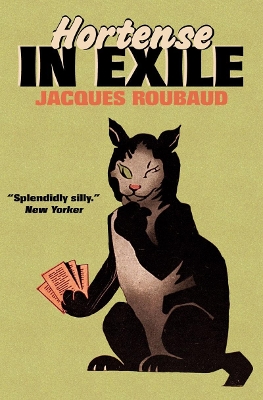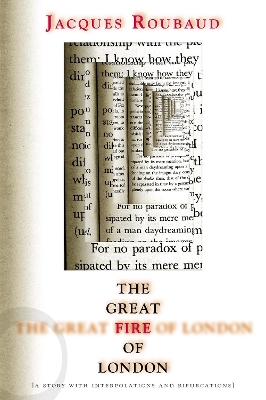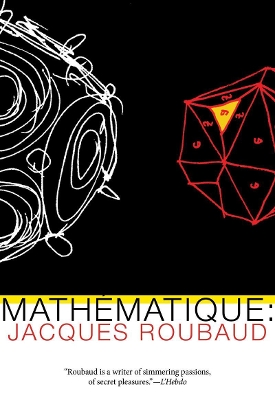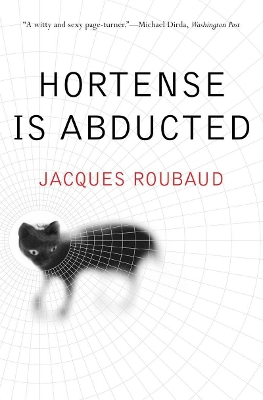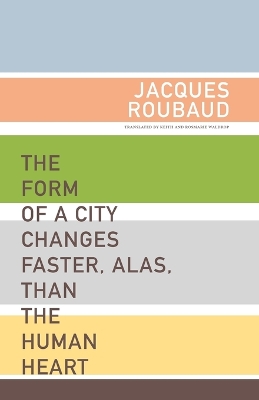French Literature
5 total works
-- First paperback edition.
-- Hortense is in trouble again. Set to marry the Premier Prince Presumptive, our heroine finds herself caught in the middle of the plot of Hamlet, playing the unfortunate role of Ophelia. Can she escape in time? Brimming with brilliant wordplay, mathematical equations, literary allusions, and cats, Hortense in Exile continues the Hortense series in grand style.
-- Jacques Roubaud is president of the l'Association Georges Perec, a society dedicated to honoring the work of his fellow Oulipian.
-- First published in the U.S. by Dalkey Archive (1992).
-- Hortense is in trouble again. Set to marry the Premier Prince Presumptive, our heroine finds herself caught in the middle of the plot of Hamlet, playing the unfortunate role of Ophelia. Can she escape in time? Brimming with brilliant wordplay, mathematical equations, literary allusions, and cats, Hortense in Exile continues the Hortense series in grand style.
-- Jacques Roubaud is president of the l'Association Georges Perec, a society dedicated to honoring the work of his fellow Oulipian.
-- First published in the U.S. by Dalkey Archive (1992).
Part novel, part autobiography, The Great Fire of London is one of the great literary undertakings of our time. Both exasperating and moving, cherished by its readers, it has its origins in the author's attempt to come to terms with the death of his young wife Alix, whose presence both haunts and gives meaning to every page. Having failed to write his intended novel (The Great Fire of London), instead Roubaud creates a book that is about that failure, but in the process opens up the world of the creative process. This novel stands as a lyrical counterpart of the great postmodern masterpieces by fellow Oulipians Georges Perec and Italo Calvino. First published by Dalkey Archive Press in 1991, now available again.
Longtime Oulipo member Jacques Roubaud's homage to one of the great passions of his life: mathematics...
-- First paperback edition.
-- In this madcap metafictional mystery a 22-year-old philosophy student (Hortense) is kidnapped and a dog is murdered -- the imaginary country of Poldevia is somehow involved. Arranged in the form of a sestina (replete with authorial asides and plenty of puns, jokes and wordplay), this is the second installment in Roubaud's popular and widely acclaimed Hortense series.
-- A professor of mathematics at the University of Paris X Nanterre and a long time member of Oulipo, the Workshop for Potential Literature, Jacques Roubaud is the author of several novels and works of poetry.
-- First published in the U.S. by Dalkey Archive (1989).
-- In this madcap metafictional mystery a 22-year-old philosophy student (Hortense) is kidnapped and a dog is murdered -- the imaginary country of Poldevia is somehow involved. Arranged in the form of a sestina (replete with authorial asides and plenty of puns, jokes and wordplay), this is the second installment in Roubaud's popular and widely acclaimed Hortense series.
-- A professor of mathematics at the University of Paris X Nanterre and a long time member of Oulipo, the Workshop for Potential Literature, Jacques Roubaud is the author of several novels and works of poetry.
-- First published in the U.S. by Dalkey Archive (1989).
The Form of a City Changes Faster, Alas, than the Human Heart
by Jacques Roubaud
Published 20 July 2006
Composed of 150 poems, with a title taken from Charles Baudelaire’s Les Fleurs du Mal, and partly a response to the poetry of Raymond Queneau, this collection explores Jacques Roubaud’s many poetic modes. He skips from the strict form of the sonnet to the freedom of prose poetry without abandoning the melancholy playfulness that has defined his lengthy writing career.
A selection of Roubaud’s best recent work, The Form of a City describes not only Paris, but also its people, its writers (and those of the Oulipo in particular), its monumental past, and its unsteady response to change.
A selection of Roubaud’s best recent work, The Form of a City describes not only Paris, but also its people, its writers (and those of the Oulipo in particular), its monumental past, and its unsteady response to change.
